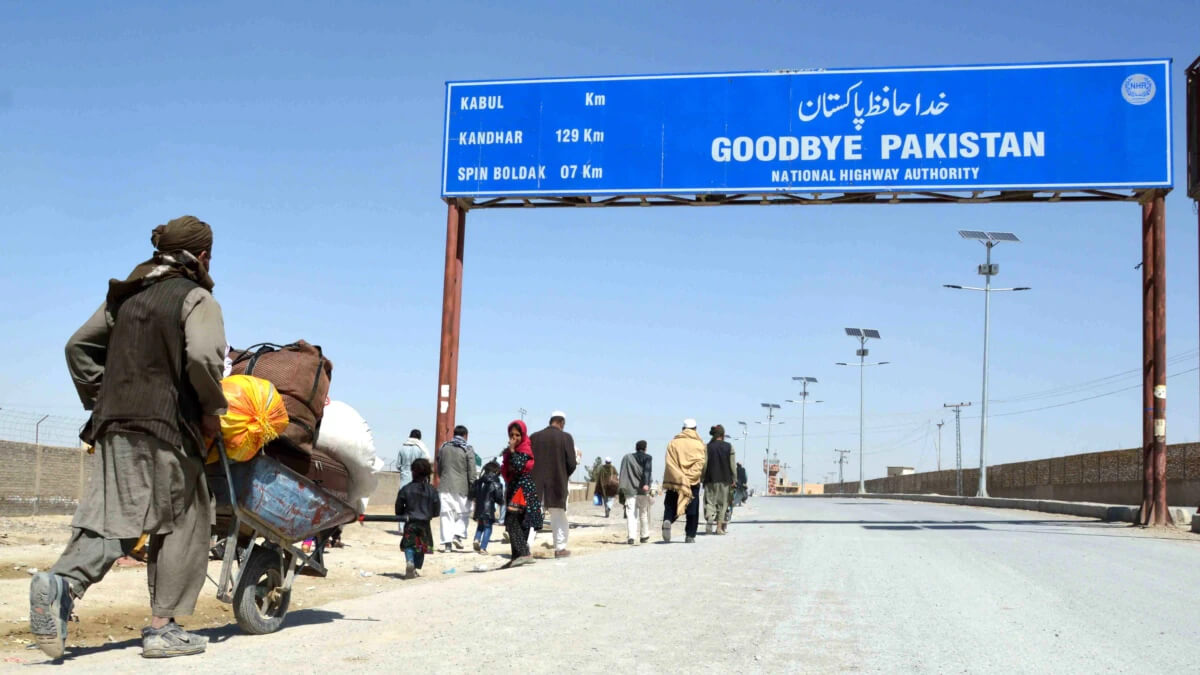Pakistan fully reopened its border with Afghanistan after the Taliban handed over the killer of a Pakistani security personnel killed in a shooting along the Durand Line last week.
Speaking to Al Jazeera, Abdul Hameed Zehri, a Pakistani official from Chaman city in Balochistan along the Afghan border, said, “The deadlock has ended and mobility between the two countries has resumed for all purposes, including pedestrians as well as trade.”
Zehri revealed that the two sides reached a compromise following the Taliban’s “firm reassurances” that it would identify and punish the assailant.
Confirming the report, Imran Kakar, the former President of the Chaman Chamber of Commerce, said that the two sides conducted the discussions in a “friendly environment.”
Referring to frequent incidents of cross-border violence, he remarked, “Both countries get affected. People get affected. Businesses get affected. These issues must only be resolved through dialogue, and ensure that trade does not stop.”
Taliban spokesman @Zabehulah_M33 claimed that an “unidentified man” killed #Pakistan’s soldier at #Chaman border. In this video one can clearly see a second #Taliban guard shooting at the CCTV camera & trying to destroy the evidence. pic.twitter.com/eCLYDFBOgr
— Ayaz Gul (@AyazGul64) November 15, 2022
The two sides met on Sunday at the Chaman border crossing, one of the busiest crossings for trade and pedestrian movement. The Chaman border crossing is also called the “Friendship Gate.”
Pakistani authorities banned movement across the crossing on 13 November after an Afghan gunman killed a Pakistani security official posted there, which resulted in a brief episode of cross-border fire.
The Taliban condemned the incident and called for an independent committee to be set up to investigate the matter. However, Taliban spokesperson Zabihullah Mujahid criticised Pakistani media outlets for falsely declaring that the assailant was a Taliban fighter.
Afghan Taliban dispatch their suicide bombers (martyrdom brigade) to fight the Pakistan army along the Durand Line.
— Sonam Mahajan (@AsYouNotWish) November 21, 2022
Intense fighting going on for two days. Pakistani media busy with Farah Gogi, government busy with Imran Khan and Imran Khan busy with the new army chief.
The decision to close the border caused shortages of tomatoes, onions, and other fresh produce in Balochistan, as trucks were abandoned and blocked from crossing to the other side.
Violence along the Durand Line has become a frequent occurrence.
For instance, on Monday, clashes erupted in Dand-e-Patan following the border closure, killing one Taliban member and another civilian, while 14 others were injured.
Matters de-escalated after the Taliban’s deputy defence minister, Mullah Mohammad Fazal Akhund, convened discussions with tribal leaders in the region.
A similar incident in Kharlachi on Sunday killed eight people.
The 2,700-kilometre Durand Line is a cause for contention between the Pakistani Taliban and the Pakistani government. Taliban militants in the region reject the demarcation, as they believe that the border separates and carves the land of the Pashtun community, millions of whom live both in Afghanistan and Pakistan.
Interesting bcz the CCTV footage clearly shows that not just that the attacker at Chaman were Taliban, but they later also shot at the Close Circuit Camera in an attempt to destroy evidence. Later, attackers video statement said that he did not regret yet he’s ‘unknown assailant’ https://t.co/5HcK1ld25w
— Anas Mallick (@AnasMallick) November 17, 2022
Meanwhile, Pakistani authorities claim that its border with Afghanistan needs to be protected and guarded, particularly due to a rise in cross-border militancy. Keeping this in mind, it is building a fence along the Durand Line, which authorities claim is 93% complete.
Pakistani has moved back and forth on its position on the Taliban since its takeover of Afghanistan in August last year. Foreign Minister Bilawal Bhutto-Zardari has emphasised that Pakistan will not officially recognise the Taliban regime until an international community achieves a consensus on the matter.
Nevertheless, trade with Pakistan continues to be a critical source of revenue for the Taliban government. Pakistan has removed a number of tariffs and simplified the visa process to further facilitate trade. It has also exponentially increased coal imports from Afghanistan to around 10,000 tonnes per day.
However, Islamabad claims it needs to maintain trade ties with the Taliban to prevent Afghanistan’s economic and humanitarian collapse, which will cause a significant influx of refugees into Pakistan.

